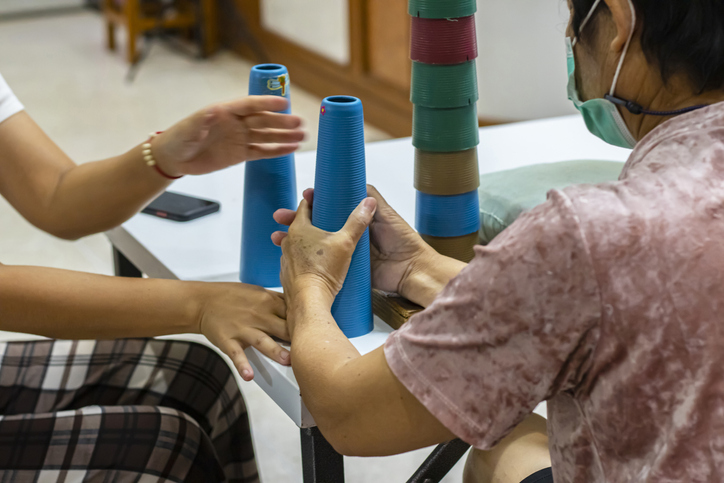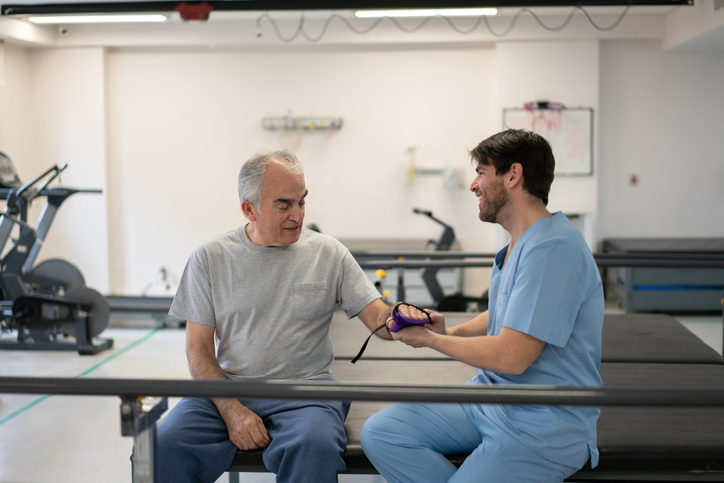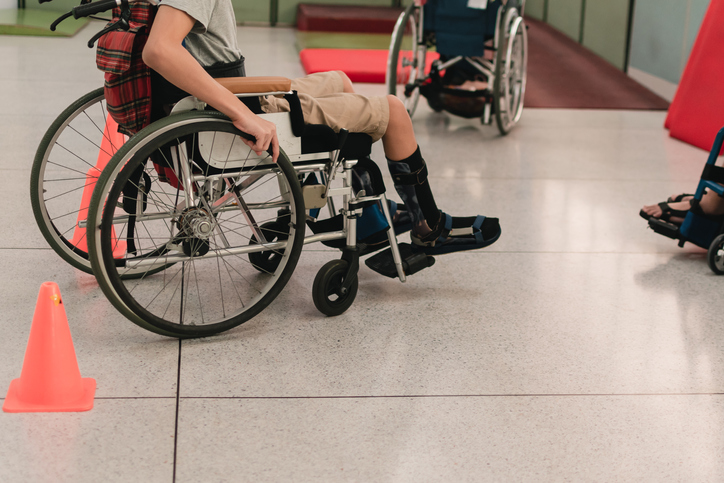Treatments
When to Consider Seeing an Occupational Therapist

What is an occupational therapist?
The role of an occupational therapist, or OT, is to help individuals maintain independence by teaching them ways to modify everyday tasks and activities that they can no longer do or have difficulty completing on their own. This could be due to certain conditions, such as autism, ADHD, sensory processing disorder, Alzheimer’s, arthritis, traumatic injury, stroke, etc. An OT can help individuals learn how to use assistive technology, learn different ways to complete tasks, suggest safety measures for the home, and train caregivers. Some OT’s help with cognitive aspects of daily life, such as helping with organization, routines, and problem-solving.
When to consider occupational therapy
The decision to see an occupational therapist can be difficult. Admitting the need for help with basic daily tasks, such as eating, bathing, and toileting, is challenging and can wrongfully cause shame. It is important for individuals to care for themselves and seek help from professionals when needed. OT may be necessary if there are changes in the health condition, high risk of falls, memory loss concerns, or reduced independence.
Changing or worsening health condition
If a health condition or symptoms have worsened, occupational therapy should be considered. This could include, but is not limited to, the following:
- Paralysis
- Mental illness issues, such as depression, anxiety, schizophrenia, etc.
- Developmental disorders, including Tourette’s, autism, etc.
- Musculoskeletal problems
- Medical conditions affecting the brain, including traumatic brain injury, stroke, dementia, etc.
- Amputations or prosthesis
- Diabetes
- Low Vision
- Severe Burns
Fall risk
If the risk of falling suddenly develops or becomes increased, the safety issue needs to be addressed. OT is beneficial in reducing fall risk by working on balance, strength, safety, mobility device training, and home evaluations.
Memory issues
Memory loss is a reason to seek occupational therapy. If a person is unable to remember appointments or dates, constantly loses objects, and forgets passwords, they will struggle with basic daily tasks. Occupational therapy can help with learning how to cope.
Reduced independence
A person may consider occupational therapy if a concern about loss of independence occurs. When struggling to function independently or safely while living alone, consult a health care profession about occupational therapy.
When to consider occupational therapy for a child
It may also be appropriate to seek OT for a child. Reasons may include, but are not limited to, the following:
- Issues with gross motor skills (e.g., difficulty with stairs, poor balance, difficulty with left and right, etc.)
- Fine motor skills problems, such as holding a pencil, operating zippers, buttoning, coloring, poor handwriting, etc.
- Developmental delays, including not reaching milestones at the appropriate age
- Issues with oral motor skills (e.g., excessive drooling, tiredness after eating, chewing food in the front of the mouth, picky eating, mouthing objects beyond the appropriate age, etc.)
- Visual processing concerns, including copying shapes, left and right, visual tracking, recognizing letters, finding certain objects among other objects, etc.
- Sensory processing issues, such as being highly sensitive to sound, touch, or movement, being easily distracted by visual or auditory stimuli, constantly moving or jumping, difficulty coping with change, difficulty calming self when upset, or high pain tolerance
- Learning difficulties that include concentration, poor impulse control, hyperactive or low energy, easily distracted, difficulty following instructions, letter or number reversals after age seven
- Issues with social interactions (e.g., delayed language skills, difficulty socially engaging, difficulty adapting to new environments, inability to cope in school environment, etc.)
- Difficulties with play, including needing adult guidance or not taking turns or sharing
Additional sources: University of Utah Health and Salus University



















